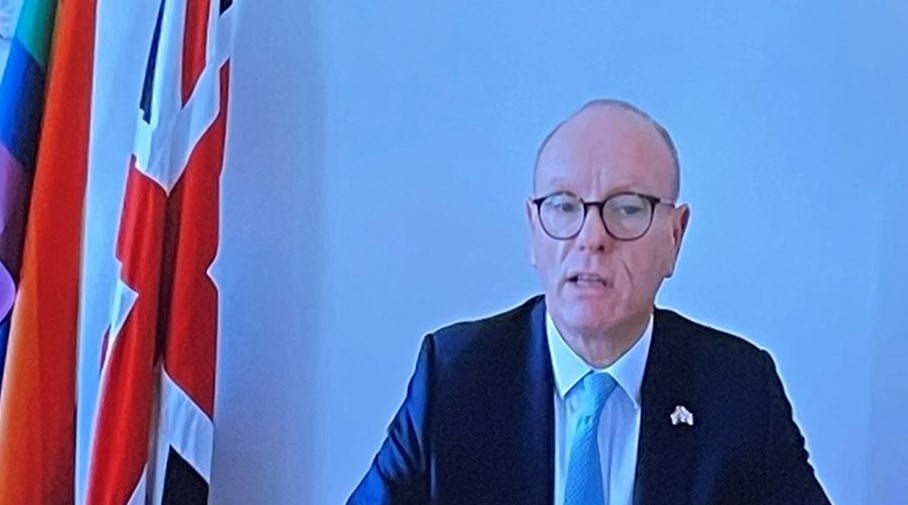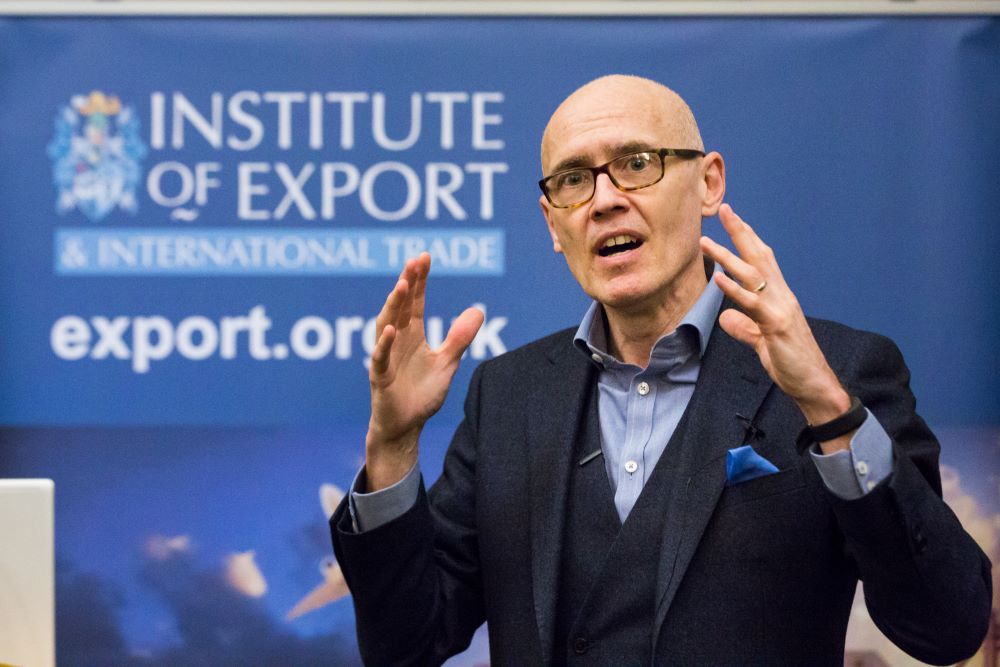
The Minister for Exports Mike Freer MP has endorsed an Institute of Export & International Trade report outlining the benefits of digitalised trade and customs, saying digital processes will be “faster …and cheaper” leading to increased exports and return
on investment.
Freer was the keynote speaker (pictured above) at the IOE&IT launch last night (Wednesday 15 March) of its new report exploring the digitalisation of trade and the benefits that could be unlocked by it.
Authoritative
Using authoritative sources of data and expert analysis, the IOE&IT’s Trade Data and Digitalisation report – available to download here – sets out the opportunities and challenges of digitalising trade.
In a pre-recorded address played at the Church House, Westminster event for IOE&IT guests, the minister agreed with the report’s findings about the benefits of digitisation which “can make border processing up to 90% faster and 60% cheaper”, he said.
Report recommendations
With a foreword by IOE&IT director general Marco Forgione, Trade Data and Digitalisation sets out 13 recommendations for government and businesses to overcome the hurdles to a digital trade future.
Before introducing the minister’s address last night, Forgione (pictured below) set out digitalisation’s macro-economic benefits. They include helping deal with “unexpected, black swan events as well as more systemic, strategic challenges faced by trade,” Forgione said.

‘Paperless future’
Freer’s address hailed a “paperless” future for trade documentation when “the documents required to navigate customs can be transmitted in the blink of an eye from one side of the world to another”.
Progress will come when “freely-moving data around the world, both between and within firms, is just as important as freely-moving physical goods and services,” he said.
The minister agreed with a key recommendation of the IOE&IT's report that government needs to work closely with the private sector to achieve digitalised trade.
‘Great strides’
The UK was “already making great strides” in digitalising trade, Freer continued, with the IOE&IT report highlighting the government’s “comprehensive five-point vision for digital trade” aiming to prevent “unjustified barriers to cross-border data flows”.
The government is working “with our international partners to ensure the rules governing digital trade are free and fair,” Freer added.
‘Champions of trade’
Freer hailed the IOE&IT as “champions of trade” working to ensure “our businesses can realise their full potential and make the UK a global hub for digital trade”.
The Trade Data and Digitalisation report is available for downloading here.
